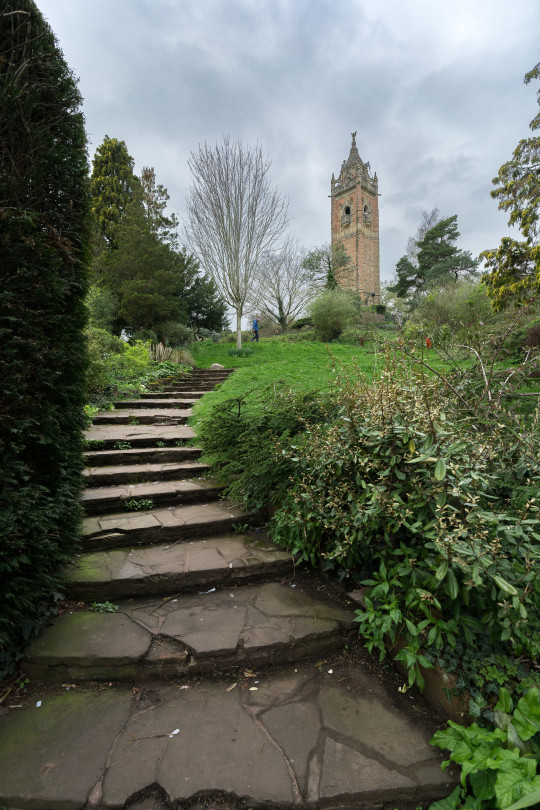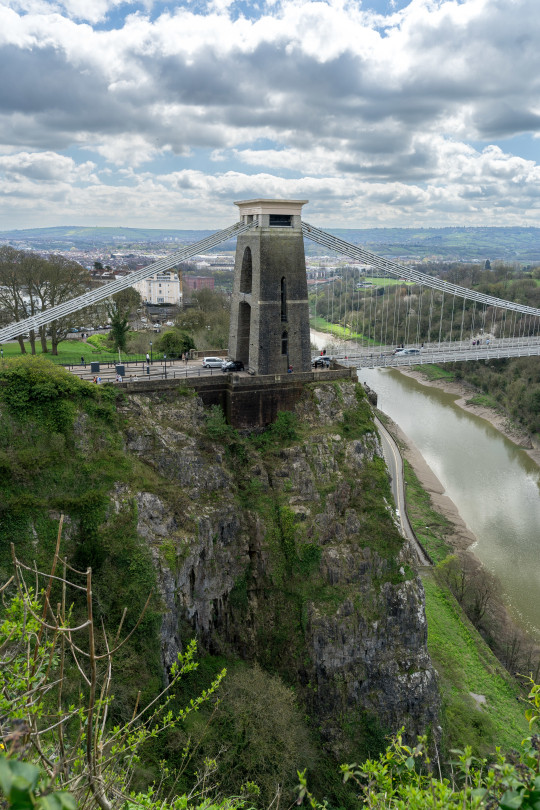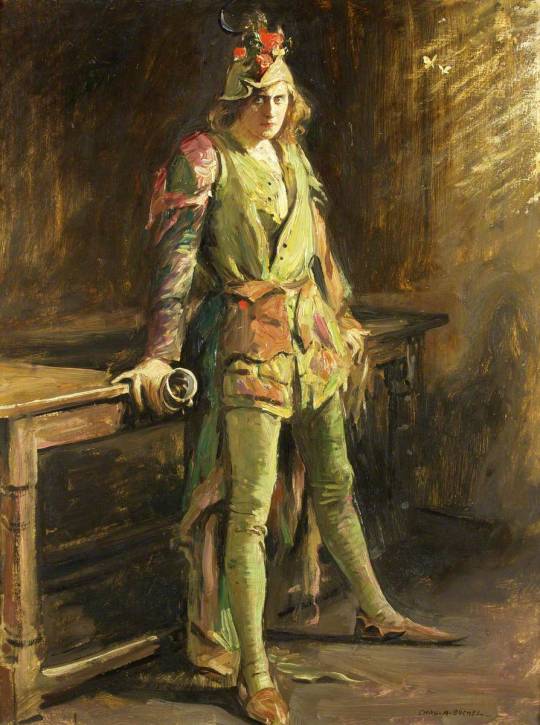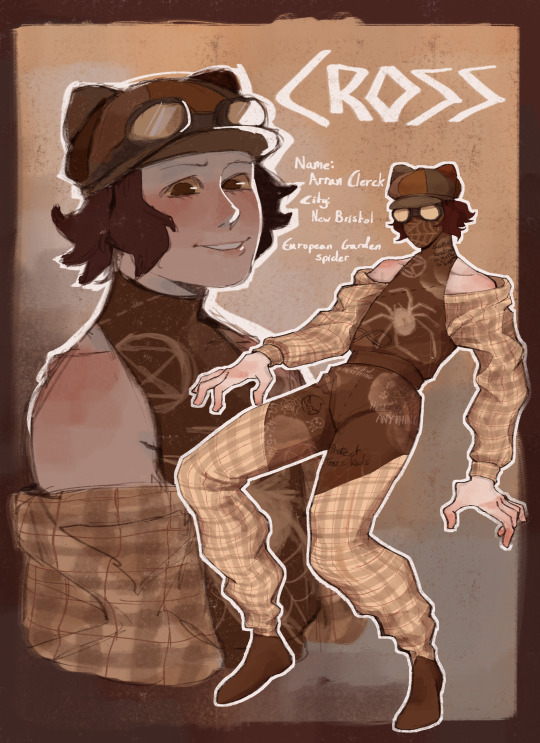#university of bristol
Text

400-year-old mystery of why early explosive produces purple smoke solved by academics
Scientists at the University of Bristol have discovered why fulminating gold—the world's first known high explosive—produces a purple smoke when it detonates, solving a 400-year-old alchemy puzzle.
Fulminating gold was first discovered by alchemists in the 16th century. It is a mixture of a number of different compounds, with ammonia providing the majority of the material's explosive power.
German alchemist Sebald Schwaertzer noted the unusual purple smoke given off when fulminating gold was detonated in 1585, and the material was later studied by leading figures of chemistry in the 17th and 18th centuries, including Robert Hooke and Antoine Lavoisier.
But while the chemistry of the fulminating gold recipe has been understood for centuries, one question remained unanswered—why does its detonation produce purple smoke?
Read more.
28 notes
·
View notes
Text
this may be far fetched because it’s tumblr but i’m sooo indecisive on my uni choices and i’m having a breakdown,
bristol vs exeter vs birmingham vs rhul
yall where should i firm??? and which do i visit 😔
#don’t ask why i picked them#i regret it now#but im too scared to do clearing or take a gap year#fuck my life#please someone give me some good news#bristol#university#university of exeter#exeter#university of bristol#university of birmingham#royal holloway#PLS HELP ME 😭#i can’t visit both exeter and bristol so idk which to choose
0 notes
Photo










Bristol
#Bristol#England#UK#street photography#architecture#Clifton Suspension Bridge#University of Bristol#murals#arch#church#banksy#Cabot Tower and Brandon Hill
0 notes
Text
Bristol in Bloom: Big Plants on Campus








Want to see more?
#post remake#photography#nature#flowers#wildflowers#wildflower conservation#poppy#rose#daffodil#Bristol#Bristol UK#University of Bristol
1 note
·
View note
Text
Fossil discovery in storeroom cupboard shifts origin of modern lizard back 35 million years
Fossil discovery in storeroom cupboard shifts origin of modern lizard back 35 million years
Newswise — A specimen retrieved from a cupboard of the Natural History Museum in London has shown that modern lizards originated in the Late Triassic and not the Middle Jurassic as previously thought.
This fossilised relative of living lizards such as monitor lizards, gila monsters and slow worms was identified in a stored museum collection from the 1950s, including specimens from a quarry near…
View On WordPress
#All Journal News#Embargoed Feed - hidden#Evolution and Darwin#Newswise#Paleontology#Squamates;Lizards;Jurassic;Triassic#University of Bristol
0 notes
Text
The University Of Bristol Scholarship In Uk For Undergraduate Students 2022
The University Of Bristol Scholarship In Uk For Undergraduate Students 2022
The University of Bristol is one of the top 10 universities in Britain offering scholarships. This distinguished university offers more than one postgraduate scholarship program, the most important of which is in terms of funding, the Think Big Postgraduate Scholarships program. Scholarships from the University of Bristol in Britain are offered to any academic discipline at the university for the…

View On WordPress
#bristol university scholarship 2022#bristol university scholarship in uk#scholarships for international students#think big scholarship university of bristol#uk university scholarships#university of bristol#university of bristol scholarships#university of bristol uk
0 notes
Text
just found out i didn't confirm my university accommodations offer in time so now i'm homeless!
yay!!!
it's very fun not knowing if i'll have a place to live in 3 months ://
#anyone with advice please dm#im looking for private rentals but if not i might defer#paniiiiiiicking#uni#university#university of bristol#university accommodation#uni accommodations#uni app
0 notes
Link
0 notes
Text
What Is Dramatic Irony in Writing? Examples of Literary Devices and Writing Advice for Using Dramatic Irony
Do you recall your first reading or watching of Romeo and Juliet? This well-known tale's terrible conclusion is a prime example of dramatic irony: While the lovers' respective lives are known to the audience, neither pair is aware of the other's continued existence. Each drinks their poison without being aware of what the audience is aware of. The use of dramatic irony in literature, cinema, and television is very effective.
What Is Dramatic Irony in Writing?
Dramatic Irony is a popular form of irony in which an utterance, event or situation appears deliberately contrary to what one might expect.
Dramatic irony is a literary technique whereby the reader or audience comprehends events or people in work better than the characters. Dramatic irony is a type of irony that is expressed through the structure of a work. It occurs when the audience has a very different understanding of the circumstances than the characters do. As a result, the characters' words and actions have very different and frequently conflicting; meaning for the audience than they do for the characters.
Although the theatrical irony is most frequently linked with the theater, there are instances in the literary and performing arts.
What Is Dramatic Irony?
Irony can take the form of dramatic irony. It is a literary and dramatic method where the audience or reader is more knowledgeable than the characters they are watching. This technique frequently results in tragedy because the audience interprets the characters' actions differently than the actors or characters do.
What Is the Difference between Dramatic, Situational, and Verbal Irony?
● The situational irony, in which what you expect to happen does not, and linguistic irony, in which words do not signify what they seem to mean, are not the same as dramatic irony.
● Dramatic irony occurs when the viewer is better known than the character. It builds suspense and anxiety. When there is a discrepancy between what is anticipated and what happens, situational irony takes place. Situational irony can be seen, for instance, in the burning down of a fire station.
● When a character says something that differs from what they truly mean or how they feel, that is verbal irony. Only in this case does the irony originate from a character.
● When the design of anything shows the discrepancy between what people believe happened and what did, this is known as structural irony. This is evident when songwriters employ untrustworthy or incredibly gullible narrators. The Catcher in the Rye by J.D. Salinger and The Great Gatsby by F. Scott Fitzgerald are two examples of this.
Examples of Dramatic Irony in Literature
In literature, the reader is kept in suspense and anxiety by what the central characters don't know, but the audience does. Dramatic irony is referred to as "tragic irony" when applied in tragedies.
1. Oedipus is destined to kill his father and fall in love with his mother in Sophocles' Greek tragedy Oedipus Rex. Unaware that he is the one who killed Laius, Oedipus promises to avenge the death of his father. He gouges out his eyes after learning the news because he is so distraught.
2. The reader knows that Odysseus is returning home in The Odyssey, Homer's epic poem, to test his wife Penelope's loyalty.
3. Quasimodo seeks to defend Esmeralda from the gypsies in Victor Hugo's The Hunchback of Notre Dame because he thinks they are coming to harm her. The audience realizes that they are indeed there to save her.
4. Dan Brown uses dramatic irony to highlight CIA Agent Simkins' ignorance of the mysteries Langdon and his sidekick, Katherine Solomon, are searching for in The DaVinci Code by taking the reader inside the George Washington Masonic Memorial.
5. Shakespeare is a pro at using dramatic irony. In the play Macbeth, Macbeth pretends to be Duncan's ally while preparing to kill him. In addition, while Iago is manipulating Othello in Othello, the audience is aware of it.
Guidelines for Writing Dramatic Irony
1. By allowing various characters access to various sorts or quantities of information, you may make your story more complex and multilayered. The characters' interactions with one another and their decisions in light of their knowledge will be on display for the viewers.
2. Pique interest by letting the reader know more about the protagonist. As an illustration, as your protagonist is waiting for his wife to arrive, she was slain in a previous chapter. Now that the hero has learned that his wife has passed away, the reader is gripped with anticipation and dread for what they know is about to happen.
3. Think about investigating the viewpoint of the story's antagonist rather than narrating the tale from your hero's perspective. This will provide the reader with information that the protagonist is missing, resulting in dramatic irony and tension.
4. To accentuate and heighten dramatic irony, center pivotal moments in your narrative around sarcastic remarks made by your characters. For instance, in Steven Spielberg's Jurassic Park, John Hammond's character frequently claims that he "spared no expense" when creating the theme park. Only when things start to go wrong does the irony of this remark become apparent.
The Function of Dramatic Irony
Dramatic irony enhances a text's tension and intrigue. Interest is heightened when the viewer knows something the protagonists are not. The reader is unaware of how their knowledge will change how the material is written.
Dramatic irony gives the audience a "window" into the story that helps them relate to the material.
It doesn't follow that knowing fact that the characters do not mean the storyline is obvious. On the contrary, having more knowledge typically motivates readers to become more engaged with the content rather than disinterested.
When to Use Dramatic Irony
Depending on how you employ it, dramatic irony is a versatile device that can be helpful in various stories. When you want your reader to be one step ahead of the characters in a thriller or suspense story, it's beneficial. (It depends on your writing style; sometimes it's best to put the audience in the same situation as the main character, but in other stories, you want them to know a little more.) It can also be used in comedic stories, mainly when the humor derives from characters acting foolish due to ignorance.
Wrapping Up
If you are stranded and want to learn more about dramatic irony, engage YourTopTutors. We will be glad to help you out!
#essay writing services#essays#collegelife#universityofarizona#universityofwashington#united kingdom#west ham united#My writing#Essaywritingservice#paytowritemyessay essaydue essaywritingservice#essaypay#University of Cambridge#University of Bristol#University of California
1 note
·
View note
Text

Research reveals rare metal could offer revolutionary switch for future quantum devices
Quantum scientists have discovered a rare phenomenon that could hold the key to creating a 'perfect switch' in quantum devices which flips between being an insulator and a superconductor.
The research, led by the University of Bristol and published in Science, found these two opposing electronic states exist within purple bronze, a unique one-dimensional metal composed of individual conducting chains of atoms.
Tiny changes in the material, for instance, prompted by a small stimulus like heat or light, may trigger an instant transition from an insulating state with zero conductivity to a superconductor with unlimited conductivity, and vice versa. This polarized versatility, known as "emergent symmetry," has the potential to offer an ideal On/Off switch in future quantum technology developments.
Read more.
#Materials Science#Science#Metals#Quantum mechanics#Purple bronze#1D materials#University of Bristol
26 notes
·
View notes
Link

#Malombra#Marina Parrino#university of bristol#gothic aesthetics#antonio fogazzaro#MalombraUK#Gothic Studies
0 notes
Text

Herbert Beerbohm Tree as Gringoire in 'The Ballad Monger', c.1912
Charles A. Buchel (1872–1950)
University of Bristol Theatre Collection
#pierre gringoire#the ballad monger#herbert beerbohm tree#haven't read the play yet#it's not based on Notre Dame#charles a. buchel#art#theatre#1910s#fin de siècle#what a name#university of bristol theatre collection
24 notes
·
View notes
Text


pretending to be a student again in bristol (they didn't offer my course at undergrad, otherwise I'd have loved to go)
#studyblr#study inspiration#study motivation#study aestheitc#study spo#study inspo#litblr#bookblr#gradblr#university life#bristol university#student life#studygram#bookgram#me#dark academia#dark academia aesthetic#light academia#light academia aesthetic
214 notes
·
View notes
Text
ohhh my god wait. oh my god wait. i didnt realize s10 took place so close to cardiff.
#ari opinion hour#st lukes university is in bristol which is in south england near the river severn which leads into the bristol channel#in which is located... the island of flat holm#google maps doesnt have ferry info which would be a way more direct route and presumably therefore a fair bit quicker#but even going the whole way AROUND the river/channel its under an hour between the two cities#there must be some kind of ferry or something itd be WAY more direct
8 notes
·
View notes
Text

i'm afflicted with brain spiders
#across the spiderverse#spiderman#my art#spidersona#i'm constructing an alternate universe where bristol becomes the capital in the wake of a climate disaster fueled revolution#i will work solarpunk into everything if possible
40 notes
·
View notes
Text


Great George - Bell - University of Bristol - Tower
The Wills Memorial Building, a landmark building of the University of Bristol, has Its Great George bell, which is rung only on rare occasions, joins churches and cathedrals across the country to encourage a moment of reflection, and can be heard up to 12 miles away.
It is named after three ‘Great’ Georges involved with the Wills Memorial Building completion. George Oatley the building’s designer; George Wills who commissioned in honour of his father; and King George V who opened the neo-Gothic building in 1925. Great George was cast in 1924 and is considered one of the deepest-toned bells in the world.
At nearly 7 foot high and over 8ft wide, weighing nine-and-a-half tonnes, it is the sixth-largest bell in England and the largest that can be rung by hand. Great George usually only tolls on the death of a monarch or chancellor
28 notes
·
View notes